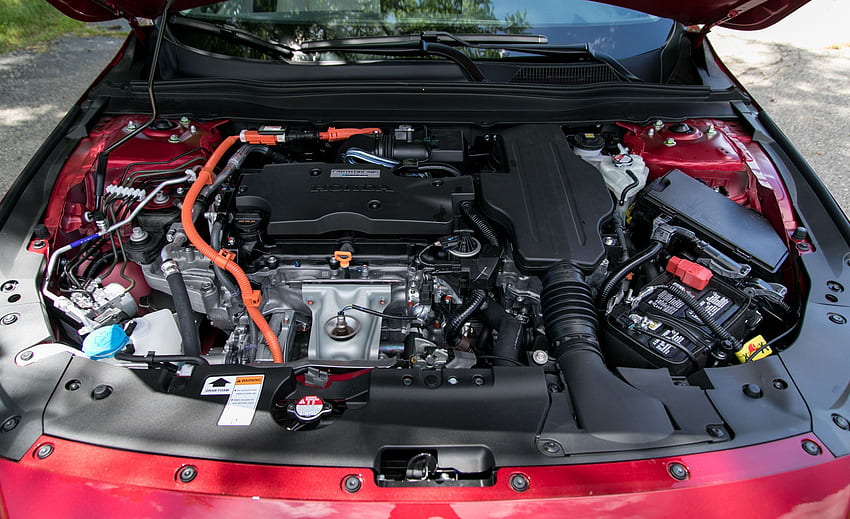

Hybrid Technology in F1 and Japanese Auto Manufacturers
Revving Up the Future: The Power, History, and Environmental Impact of Hybrid Technology in F1 and Japanese Auto Manufacturers
Hybrid technology in cars, which began in the F1 racing world, has been significantly developed and popularized by Japanese auto manufacturers like Toyota, Nissan, Honda, Mazda, and Mitsubishi. These manufacturers have integrated efficient and cost-effective batteries for power and reliability, reducing environmental impact and contributing to a greener world.
The development and history of hybrid cars, including Toyota’s pioneering Prius, highlight a shift towards sustainability in the automotive industry. Despite initial costs, long-term savings and ongoing advancements make hybrid technology increasingly affordable and popular among consumers.
As we navigate towards a greener world, the rise of Hybrid Technology – particularly in the realm of cars – has proven to be a pivotal step in this journey. This technology, which combines the power of gasoline engines and the efficiency of electric batteries, has seen a significant evolution throughout its history.
From its early development in the world of F1 racing to its mainstream adoption by renowned Japanese auto manufacturers like Toyota, Nissan, Honda, Mazda, and Mitsubishi, hybrid technology has come a long way. This article will explore the history of hybrid technology, the reliability and power of hybrid cars, and their growing popularity.
We’ll delve into the impact of hybrid technology on our environment and its cost-effectiveness. So gear up as we drive through the past, present, and future of hybrid technology, unveiling its critical role in steering us towards a more sustainable and eco-friendly world.
Contact Us Here For Your Japanese Hybrid Car
Join USS Ninja for Japanese Auction Cars.
The Evolution of Hybrid Technology: Tracing the History from F1 to Japanese Auto Manufacturers
Hybrid technology, as we know it today, is the product of a rich history of development and innovation. This journey can be traced back to the world of Formula 1 (F1) racing and the Japanese auto manufacturers who championed its advancement.
The inception of hybrid technology in F1 cars was the result of a quest for more power and better reliability. The Kinetic Energy Recovery System (KERS) was introduced in 2009. It was a form of regenerative brake technology that stored kinetic energy in batteries for later use. This development was a significant leap in the history of hybrid technology, and the automotive world took note.
Japanese auto manufacturers, notably Toyota, Nissan, Honda, Mazda, and Mitsubishi, were quick to identify the potential of this technology. They spearheaded the development and integration of hybrid technology into consumer vehicles, creating a surge in its popularity.
Toyota was the first to make this leap with the introduction of the Prius in 1997. This car quickly became a symbol of the hybrid revolution, boasting improved fuel efficiency and reduced emissions. Nissan, Honda, Mazda, and Mitsubishi followed suit, each bringing their unique contributions to hybrid technology’s evolution.
Hybrid technology’s history isn’t just confined to Japanese auto manufacturers, though. Other car manufacturers worldwide have also played a crucial role in its development. They have innovated and experimented with hybrid technology, pushing its boundaries and capabilities further.
Today, the popularity of hybrid cars cannot be understated. Their cost has significantly come down over the years, making them a viable option for more consumers. Furthermore, their benefits to the environment are contributing to a greener world. Hybrid cars emit less carbon dioxide and other harmful pollutants, helping combat climate change.
Batteries have been a critical component in the development of hybrid technology. They store and provide power, enabling the vehicle to alternate between using gasoline and electricity. Over the years, batteries have become more efficient, reliable, and cost-effective, adding to the appeal of hybrid cars.
In conclusion, the evolution of hybrid technology has been a collaborative effort between F1 and Japanese auto manufacturers, with contributions from other car manufacturers around the globe. This journey has led to a significant shift in the automotive industry, shaping a more sustainable and greener world. This history of hybrid technology is a testament to human ingenuity and our ability to innovate for a better future.
Hybrid Cars: Unveiling the Power and Reliability of Toyota, Nissan, Honda, Mazda, and Mitsubishi”
Hybrid technology in cars has transformed the automobile industry for good. It has not only brought significant development in terms of power and reliability but also in making the environment greener. At the forefront of this revolution are Japanese auto manufacturers like Toyota, Nissan, Honda, Mazda, and Mitsubishi.
Toyota, a pioneer in the history of hybrid technology, introduced the Prius model in 1997, which quickly gained popularity for its groundbreaking performance and fuel efficiency. The model’s power comes from a combination of petrol engines and electric motors, showcasing Toyota’s commitment to a greener world.
Nissan, another renowned Japanese auto manufacturer, has also made notable strides in hybrid technology. The Nissan Note e-Power, for example, operates entirely on an electric motor, offering the benefits of an electric car without the need for plug-in charging. The car’s batteries are charged by a small petrol engine, providing a unique blend of power and reliability.
Honda, not to be left out, has been at the forefront of hybrid technology since the Insight model was introduced in 1999. Honda hybrids use the power of an electric motor at low speeds and a gasoline engine at high speeds, offering a highly efficient and reliable driving experience.
Mazda, while relatively new to the hybrid scene, has made significant progress with the Mazda3 hybrid model. It combines a 2.0-liter engine with an electric motor and batteries, demonstrating Mazda’s commitment to hybrid technology and a greener world.
Meanwhile, Mitsubishi has been making headway with its Outlander PHEV, a plug-in hybrid that offers impressive power and reliability. The model’s popularity stems from its ability to run solely on electric power for short trips, making it an ideal choice for city dwellers.
The cost of these vehicles is gradually becoming more competitive, thanks to the advancements in hybrid technology. While other car manufacturers are also joining the race, the Japanese manufacturers are leading the charge, setting the bar high for power, reliability, and environmental responsibility.
In the realm of motorsports, F1 is also turning to hybrid technology. The F1 hybrid power unit combines a 1.6-liter V6 turbocharged engine with energy recovery systems, pushing the limits of performance and efficiency.
In conclusion, hybrid technology has revolutionized the automobile industry, providing a reliable, powerful, and cost-effective alternative to traditional cars. The future is bright, with Japanese manufacturers like Toyota, Nissan, Honda, Mazda, and Mitsubishi leading the charge towards a greener world.
Driving Towards a Greener World: The Popularity, Cost, and Environmental Impact of Hybrid Technology”
Hybrid Technology is rapidly gaining popularity as a sustainable solution in the automotive industry, significantly contributing to driving us towards a greener world. This technology, pioneered by Japanese auto manufacturers like Toyota, Nissan, Honda, Mazda, and Mitsubishi, has been adopted by other car manufacturers worldwide. Its development has revolutionized the industry, proving that hybrid cars can be a reliable, cost-effective, and environmentally friendly alternative.
The history of hybrid technology dates back to the early 20th century. However, it gained significant traction in the late 1990s when Toyota introduced the Prius – the world’s first mass-produced hybrid vehicle. Since then, other manufacturers have followed suit, developing their hybrid models, from family cars to F1 racing machines.
Hybrid technology combines the power of a conventional internal combustion engine with an electric motor and batteries. This combination reduces dependency on fossil fuels and, consequently, CO2 emissions. The electric motor’s power allows for smoother and quieter rides, while the combustion engine ensures long-distance reliability.
The popularity of hybrid technology has steadily increased over the years. Factors such as rising fuel prices and stricter emission regulations have led consumers to seek more efficient and eco-friendly options. Hybrid cars have proven to be an attractive choice, offering fuel efficiency, lower maintenance costs, and tax incentives in several regions.
As for the cost, while the initial purchase price of hybrid cars can be higher than their conventional counterparts, the long-term savings in fuel and maintenance costs can offset this difference. Furthermore, car manufacturers are continuously working on technological advancements to make hybrid technology more affordable.
The environmental impact of hybrid technology is another important factor contributing to its popularity. Hybrid cars emit significantly less CO2 compared to conventional cars, reducing their impact on global warming. Moreover, some hybrid models can run purely on electric power for short distances, producing zero tailpipe emissions.
The batteries used in hybrid technology have also evolved considerably. Early models used nickel-metal hydride batteries, but most modern hybrids now use lithium-ion batteries, which are lighter, more powerful, and more efficient.
In conclusion, hybrid technology is a crucial step towards a greener world. With major manufacturers, including the Japanese auto giants Toyota, Nissan, Honda, Mazda, and Mitsubishi, heavily investing in the development and refinement of this technology, it’s likely that hybrid cars will become even more prevalent in the future. This progression not only signifies a shift in the industry but is also a testament to our collective effort to reduce our carbon footprint and embrace a more sustainable lifestyle.
In conclusion, Hybrid Technology has come a long way since its early beginnings in F1, gaining traction and popularity among Japanese Auto Manufacturers such as Toyota, Nissan, Honda, Mazda, and Mitsubishi.
This development has seen the creation of cars powered by hybrid batteries that not only boast power and reliability but also contribute to a greener world. The history of hybrid cars is a testament to the relentless pursuit of innovation and sustainability in the automotive industry. Hybrid technology’s cost and environmental impact have made it an attractive alternative to traditional fuels, increasing its popularity among other car manufacturers worldwide.
As we continue to drive towards a greener world, it is evident that the future of automotive technology lies in the continued advancement and adoption of hybrid technology.
Table of Contents
ToggleAdd a comment Cancel reply
Comments (1)
Categories
- Auto Detailing (5)
- Car News (54)
- Car Reviews (48)
- Classic Cars (26)
- Importing Rules By Country (5)
- Japan Car Auctions (5)
- JDM (18)
- Uncategorized (23)
Recent Posts
About us

I am not one for writing articles actually so most of these articles come from contributors that I have met over the years or with a little help of supporters.
If you have any desire to import a car from Japan or simply need some advice get in touch via Whatsapp here at +81-90-5400-6384
Looking For That Special Car Has Never Been Easier.
Finding the right car in Japan is not always easy and finding the best partner in Japan to help you with this is sometimes even harder.
With over 25 years buying history and great contacts all over Japan I can help you in every way.
Get hold of me today!
Popular Tags
Related posts


30 Upcoming Blog Titles






Japanese Used Cars for Sale, Quality, Value, and Easy Import Guide






Water Damaged Cars












